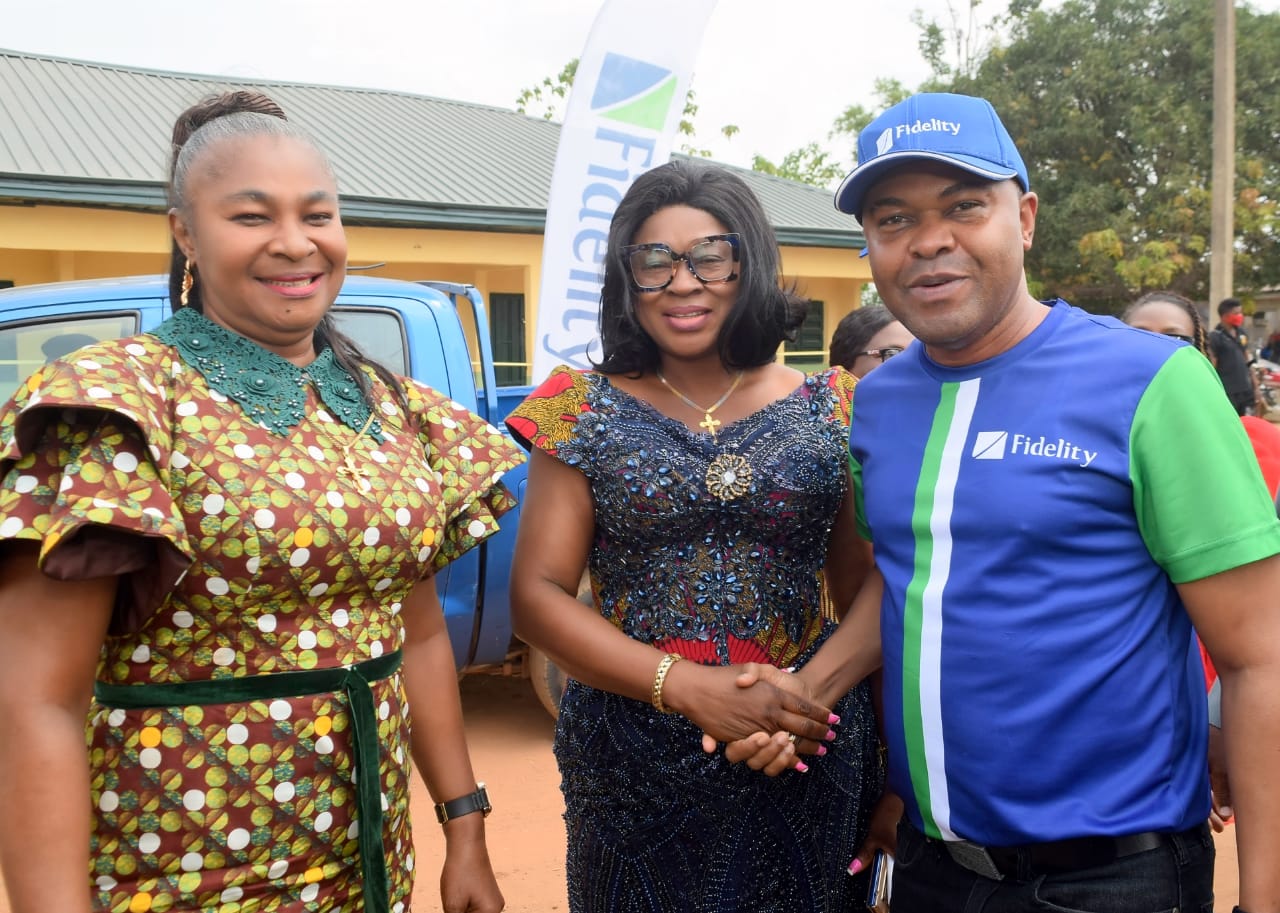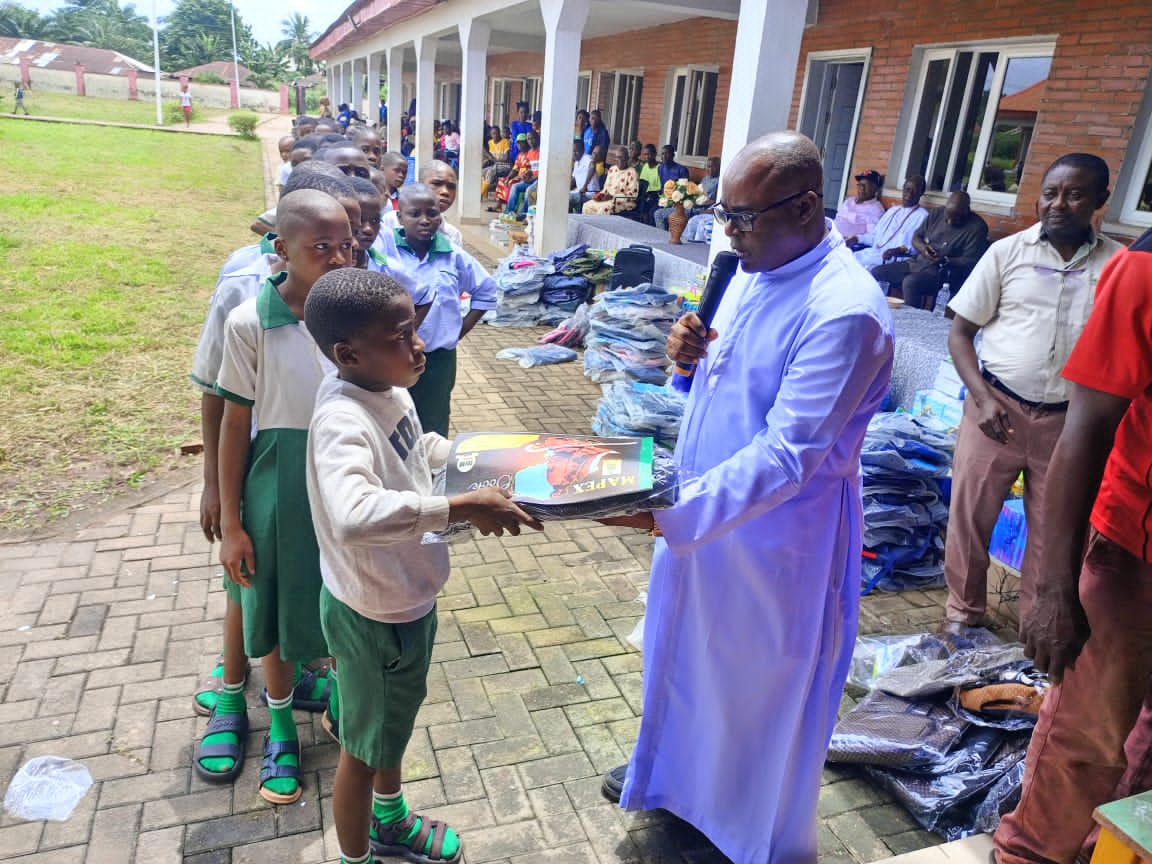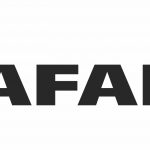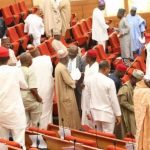Education
Education Takes a Hit From the Covid Crisis

Prior to the COVID-19 pandemic, Nigeria’s labour market had been plagued with precarity and informality. With over 30 million youths (people aged between 15 and 29 years of age) projected to enter the labour market in 2021 (which accounts for over 53% of that age group), the COVID crisis couldn’t have hit at a worse time.
The impact of COVID-19 felt on the labour market is not without precedent for Nigeria’s young workers. At the onset of the oil recession in 2016, young people entering the labour market in Nigeria faced similar hardships.
In consequence, a significant number of young Nigeria opted – or were compelled – to abandon their schooling in favour of work. At the onset of the oil recession – much like what happened at the onset of the COVID crisis – the percentage of young people in Nigeria who entered the labour market jumped by over 12%.
While working certainly can provide short-term relief during a crisis, unfortunately, this comes to the detriment of Nigeria’s already low human capital. The human capital index (or HCI), as defined by the World Bank, aims to quantify the effects that education and health have on the productivity of the next generation of workers.
Over the last four years, Nigeria’s human capital index has remained at a steady and concerning 0.35%. To offer a comparison, this score ranks Nigeria slightly below Afghanistan which comes in at 0.4 and significantly lower than leading countries such as Singapore and Australia whose scores reach above 0.9%.

With so many young Nigerians being forced – for all intents and purposes – to forego their education in exchange for immediate economic relief in precarious low-paying jobs, the country is facing an uphill battle in terms of improving working conditions, seeing a rise in salaries and a decrease in long-term unemployment. All trends point to the fact that technology is a good career path. But entering this field – much less excelling in it – requires a certain level of education that young Nigerians are being deprived of.
This causal chain can snowball quickly as the country continues to produce a relatively underqualified workforce, the better-paying jobs will continue to go elsewhere. And while the oil and gas production career path certainly has its benefits, as the oil recession of 2016 showed us, the field is vulnerable to rapid and wild fluctuations.
Whereas receiving a quality secondary education will broaden one’s scope of work options, raise their standard of living and those around them, and give them the arms to combat against potential recessions and crises, without an education, the chances of these crises having lingering effects is increased dramatically – if not outright guaranteed.
Due, in part, to the COVID-19 crisis, economists are predicting that Nigeria is headed for its worst recession in 40 years. A staggering 20 million Nigerians are expected to fall below the poverty line in 2022.
The GDP is projected to dip, as well, which would mean a significant loss in government revenue. This, in turn, would likely lead to cuts in both education and the health care system. And the snowball gets bigger and bigger and bigger.
Despite the pessimistic projections, government officials such as Shubham Chauduri, the World Bank’s County Director for Nigeria, is quick to point out that initiatives have been put in place, and we are already seeing positive results.
In 2021, The Central Bank of Nigeria (CBN) initiated a weakening of the official exchange rate for the naira. This was done in a concerted effort to try to converge the official rate with that of the NAFEX (the Nigerian Autonomous Foreign Exchange Rate).
“We acknowledge the steps to reform exchange rates,” said Shubham Chaudhuri. “But that’s one part of it.”
Other measures that have already been implemented include the introduction of a market-based pricing policy for petrol; the reduction and potential elimination of subsidies for electricity; and the adjustment of tariffs.
The projected savings these measures would mean for the government are meant to allow Nigeria to redirect its resources toward COVID-19 response and relief. The sooner we get through the crisis, the sooner those resources can be reallocated. To where, and to what end remains to be decided.
If ever we can look at this crisis and see a silver lining it would be that the dire circumstances and woeful projections are forcing officials to take practical actions – many of which have been a long time coming.
Nigeria’s farmers are a high priority in the current wave of economic reforms. Some notable examples of initiatives that have begun to be rolled out include:
- Additional funds allocated to the research of improved crop and livestock varieties
- Additional funds released to help support the infrastructure associated with farming – this includes storage, transport, and market access.
While these initiatives are likely to yield long-term benefits, there is potentially no greater long-term return on investment than that which comes from investing in education. For the time being, however – much like in prior crises – education is being made to take a back seat.
Education
Fidelity Bank Renovates Anambra Community Secondary School

By Aduragbemi Omiyale
An administrative building at the Community Secondary School, Enugwuabo Ufuma, in Orumba North Local Government Area of Anambra State has been renovated by Fidelity Bank Plc.
The project underscores the bank’s long-standing commitment to investing in education as a catalyst for sustainable development, according to the Regional Bank Head for Fidelity Bank, Mr Nosa Orumwense, at a ceremony to officially hand over the building to the school’s leadership.
It was gathered that the leading financial institution comprehensively renovated the one-storey administrative block to address infrastructural challenges faced by the school.
“For us at Fidelity Bank, this project represents more than a building. It represents opportunity, progress, and a shared commitment to building a better future for our youths here in Enugwuabo Ufuma and beyond.
“By improving the educational infrastructure of this community, we are providing students and teachers with an environment that promotes learning, discipline, and pride,” Mr Orumwense stated.
On her part, the Commissioner for Education, Professor Ngozi Chuma-Udeh, who represented the Governor of Anambra State, Professor Chukwuma Soludo, described the project as a true demonstration of corporate social responsibility.
“Corporate social responsibility is what gives an organisation its human nature. What Fidelity Bank has done reflects compassion and a genuine commitment to touching lives,” she said.
“This school was earlier placed on an emergency list due to the deplorable condition of its buildings. During my last visit, I was genuinely concerned about the safety of both students and teachers. Today, the school wears a new look, thanks to Fidelity Bank’s support,” she added.
The Commissioner also expressed the state government’s appreciation to Fidelity Bank, saying, “We thank Fidelity Bank for this intervention, which clearly demonstrates the true meaning of corporate social responsibility – making tangible impacts that improve lives and strengthen communities.”
Education
Saint Riman of Adedokun International Schools Ota Wins InterswitchSPAK 7.0

By Modupe Gbadeyanka
A student of Adedokun International Schools, Ota, Ogun State, Saint Riman, has emerged as the overall winner of the InterswitchSPAK National Science Competition.
The 16-year-old student was crowned Nigeria’s Best STEM Student, receiving a N15 million scholarship in the InterswitchSPAK 7.0 grand finale.
InterswitchSPAK is the flagship Corporate Social Responsibility initiative of Interswitch, one of Africa’s leading integrated payments and digital commerce companies.
The programme is Nigeria’s largest STEM competition for senior secondary school students. It concluded on a high note after months of nationwide assessments, problem-solving challenges, and competitive stages involving over 18,000 registered participants.
Business Post reports that David Okorie of Caleb International College, Magodo, Lagos State, was the first runner-up, getting N10 million in scholarship, while David Solomonezemma of Deeper Life High School, Enugu State, was the second runner-up, bagging a N5 million scholarship. All winners also received brand-new laptops in addition to other exciting prizes.
While presenting the awards, the Group Marketing and Communications for Interswitch, Ms Cherry Eromosele, commended the students for their discipline, resilience, and exceptional intellectual performance.
“InterswitchSPAK was created to inspire and reward excellence in STEM education while equipping young Africans with the skills to tackle real-world challenges.
“These winners have demonstrated remarkable promise, and by supporting their education, we are reaffirming our belief in the power of young people to shape Africa’s future through innovation and science,” Ms Eromosele said.
Beyond the top three winners, other finalists received brand new laptops and exciting cash rewards for outstanding performance, alongside their teachers who were also celebrated and rewarded for their critical role in nurturing talent. This holistic approach reinforces Interswitch’s commitment to sustainable educational development through collaboration between students, educators, and institutions.
Now in its seventh year, InterswitchSPAK has become a highly respected platform, serving as a pipeline for discovering, developing, and empowering the next generation of scientists, engineers, technologists, and innovators. Through this initiative, Interswitch continues to highlight how strategic private sector investment in education can drive innovation, reward merit, and contribute meaningfully to national development.
The successful conclusion of InterswitchSPAK 7.0 underscores Interswitch’s leadership in advancing STEM education as a catalyst for socio-economic growth, preparing Nigerian students to compete confidently on the global stage while shaping Africa’s innovation-driven future.
Education
Zurich-based Sparkli Raises $5m for Generative Learning Platform

By Dipo Olowookere
A Zurich-based anti-chatbot edtech firm, Sparkli, has secured about $5 million pre-seed round for its generative learning engine designed to turn screen time into active learning expeditions that foster agency, curiosity, and future-ready skills.
The pre-seed round will allow Sparkli to scale its generative learning engine and prepare for a private beta launch in January 2026. The company is currently validating its platform through a strategic pilot with one of the world’s largest private school groups.
This partnership provides Sparkli with a powerful testing ground across a network of more than 100 schools and over 100,000 students.
Sparkli transforms the curiosities of children into multi-disciplinary, real-life journeys that foster future-ready skills, including technology, design thinking, sustainability, financial literacy, entrepreneurship, emotional intelligence, and global awareness.
The company is already positioning itself to disrupt the $7 trillion global education market, a sector widely predicted to be one of the most significant use cases for artificial intelligence.
Its approach is shaped by three shifts essential for modern childhood education, a strategy designed to solve the ‘Agency and Curiosity Gap’. First, it forces a Velocity Shift by moving away from static curriculums to real-time relevance where children explore new topics the moment they emerge.
Second, it drives an Engagement Shift by replacing the dry ‘AI chatbot wall of text’ and passive screen time (watching videos, playing video games) with a multimodal playground of visuals, voice, and playable simulations. This turns consumption into active, gamified inquiry rooted in educational value.
Finally, Sparkli prioritizes a Skills Shift that focuses on capabilities such as creativity and complex problem solving rather than memorization.
“Our goal is to build agency in the next generation. Children learn by exploring, making choices, asking questions, and discovering what inspires them. Sparkli turns screen time into a place where curiosity grows rather than fades,” the chief executive of Sparkli, Mr Lax Poojary, said.
One of the funders, Lukas Weder of Founderful, said, “Sparkli represents a step change in how children can interact with knowledge.
“The team is applying high caliber engineering and thoughtful pedagogy to a space that desperately needs innovation. Their traction with schools shows a real appetite for tools that foster curiosity and agency rather than passive consumption.”
-

 Feature/OPED6 years ago
Feature/OPED6 years agoDavos was Different this year
-
Travel/Tourism9 years ago
Lagos Seals Western Lodge Hotel In Ikorodu
-

 Showbiz3 years ago
Showbiz3 years agoEstranged Lover Releases Videos of Empress Njamah Bathing
-

 Banking8 years ago
Banking8 years agoSort Codes of GTBank Branches in Nigeria
-

 Economy3 years ago
Economy3 years agoSubsidy Removal: CNG at N130 Per Litre Cheaper Than Petrol—IPMAN
-

 Banking3 years ago
Banking3 years agoSort Codes of UBA Branches in Nigeria
-

 Banking3 years ago
Banking3 years agoFirst Bank Announces Planned Downtime
-

 Sports3 years ago
Sports3 years agoHighest Paid Nigerian Footballer – How Much Do Nigerian Footballers Earn


















